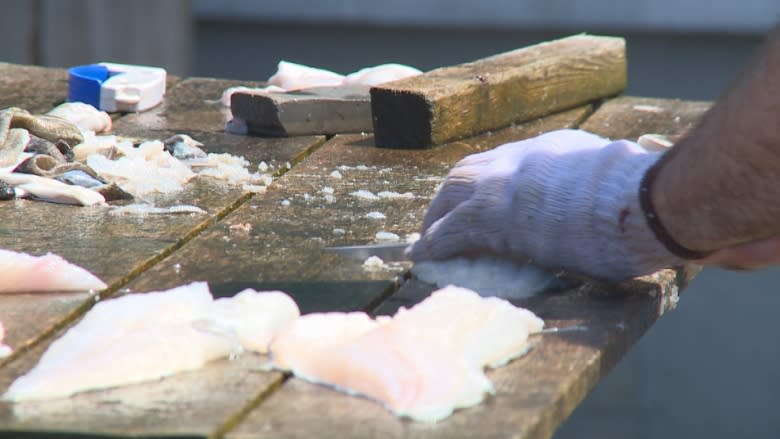DFO abandoning tags for Newfoundland and Labrador food fishery
The Department of Fisheries and Oceans (DFO) is abandoning the idea of a tag system for the recreational food fishery in Newfoundland and Labrador for 2017.
At an announcement on Friday, DFO said the same rules from last year will remain in effect, despite some talk of bringing in a licence and tag system.
"The vast majority of people had no interest in tags," said Avalon MP Ken McDonald who announced the rules in Holyrood on Friday.
Last year's move to extend the season by 14 days will be repeated, which means this year's season will once again be 46 days in total, starting on Canada Day. It also means the same allowable catch limit of five fish per person and 15 fish per boat, per day.
One change to the fishery for 2017 is that tour boat operators can now apply for a licence for increased trip limits, but they will have to report their catches.
The season is set to start on July 1 and will run every weekend throughout the summer, plus two weeks in July and another period in September.
Listened to the people
The decision to not use a licence and tag system came after public consultations, where DFO says it heard strong opposition to such a program.
DFO said it will work with people in Atlantic Canada and Quebec in the coming months on the possibility of introducing a marine recreational licence program in 2018 that does not use tags.
"I have heard you loud and clear," wrote Minister of Fisheries and Oceans Dominic LeBlanc in a statement. "There is very little public appetite for the use of tags, and we will therefore not be implementing that regime."
Licences for 2018?
McDonald said there will be consultations for a new proposal: requiring licences.
"Some people did show an interest, they could see a licencing regime, or a log book type-thing where they could keep track of what the catches are, but other than that there was no appetite, I don't think, for the tags," he said.
DFO had wanted the tags as a way to monitor the number of fish caught as it assesses the health of the cod stocks.
"We're going to do some enhanced monitoring, to get a better handle as well of landings throughout the recreational fishery," Tony Blanchard, the acting director of resource management and aboriginal fisheries, told reporters Friday.



